Philosophy in Anime

Philosophy is the study of general and fundamental questions. Philosophers ask questions about knowledge, reason, values and human existence. I may surprise many, but anime often tackle these complex questions as well. Philosophy is one of the many influences commonly found in anime. By including philosophical themes anime series can have more complex stories and characters. This is likely one of the many reasons that the most impactful and revered anime series tend to have some form of philosophy. Mob Psycho 100 is an anime series from the creator ONE, this series focuses on the philosophy that no one is special. Ghost in the Shell, a series created by Mamoru Oshii, focuses on post-humanism philosophy. Finally, I’ll discuss how Adam Smith philosophy applies to One Piece, one of the most acclaimed anime series of all time.
You’re not that special
The anime series, Mob Psycho 100 focuses on Shigeo Kageyama aka Mob, a little boy who’s average in every way except that he has psychic powers. The series presents the argument that having psychic powers doesn’t make one “special.”These psychic individuals are called espers. The espers in the series have one special trait that is no better or worse than being able to sing or dance. Many of the espers in Mob Psycho 100 are entitled and believe that the world should belong to them. Mob often points out that because espers are overly dependent on their powers they lack substance. In episode 5, titled Ochimusha – Psychic Powers and Me, Mob encounters Teru, a psychic that used his powers to dominate his classmates and gain popularity. This resulted in him developing a superiority complex, believing that he was the “main protagonist of the world.”

He challenges Mob to a fight using their psychic powers. During the conflict Mob tells Teru that he knows why he hates him so much. If Teru had no powers he would be “empty.” Mob believes that there are things you can’t have because of psychic powers and you have to work for them, like muscles. He joins the body improvement club, hoping that through hard work, not his powers he can gain fitness. Arataka Reigen, Mob’s mentor and boss is the one that instilled these morals in him. Reigen considers everyone equal regardless of abilities.
He feels that anyone that believes that they’re “superior” because they are espers are “detached from the real world.” He explains his theory during the last episode of season 1. Reigen takes on the Scars, a group of powerful espers. Protected by Mob’s powers, he easily defeats them. He compares them to a “child with knives” and mocks them. He explains that despite having psychic powers the members of Scar are “commoners,” just like him. Using his rhetoric, Reigen shows them that despite having powers they’re not that special at all.
What does it mean to be human
In Anime and Philosophy: Wide Eyed Wonder, Angus McBlane argues that Ghost in the Shell questions “what does it mean to be human.” Humanism is the “philosophical and ethical stance that emphasizes the value and agency of human beings.” Post-humanism aims to present “humans” as not being the only characteristic of humanity. McBlane believes that cyborgs are “boundary figures” that represent the transition from “humanism to post-humanism,” in cyberpunk literature and film. Ghost in the Shell explores these themes. McBlane suggests that the Ghost in the Shell film tangles with tensions found between humanism and post-humanism. In the film, Major Motoko Kusanagi is the main protagonist.
She is a cyborg working for a policing organization, Section Nine. Through Motoko, the film explores “one of the central themes of post-human thought: embodiment.” Motoko is a “full replacement cyborg,” meaning that her body is completely robotic, her brain is the only organic part of her. The question becomes how do we view her “body.” How does Motoko “identify” with her robotic body. According to McBlane, “cyborgs are a central part of post-human thought.” Characters have to work through a “dualism” that’s attached to the ideas of humanist thought. Cyborg represents the boundary between “human and post-human.”

In Ghost in the Shell there are various levels to being a cyborg. Some have minimal cybernetic upgrades, to full body replacements. These levels are determined by how much organic matter remains. Throughout the film, Motoko struggles with “two main forms of embodiment,” the first is the “division between a body and mind.” The mind is linked to what is called the “ghost.” The concept of the “ghost” is never fully explained, but it becomes the “marker of her identity.” When she fuses with the Puppet Master, the second form is introduced. Motoko’s mind becomes one with the Puppet Master, shifting her consciousness and further complicating her humanity. She struggles with her sense of self. Ghost in the Shell presents a new philosophical question regarding what makes a “being.”
What role does competition play
Also from Anime and Philosophy: Wide Eyed Wonder, Andrew Terjesen argues that shōnen anime embodies the philosophy of Adam Smith. His theory is useful in asking “what role we think competition should play in shaping who we are.” Terjesen believes that Adam Smith’s economic philosophy is applicable to Zoro and Mihawk from One Piece. Smith believed that “competition is so important, because without it people tend to be sloppy and lazy.” In One Piece, Zoro is traveling the seas in search of Mihawk. He seeks to become the world’s “best swordsman.” Each fight becomes a step towards that goal. When they meet, Mihawk defeats Zoro easily. However he doesn’t kill him but challenges him to get stronger. Throughout the series Zoro uses battles with other swordsmen, increasing his skills after each encounter.

One of the basic principles of Smith’s theories is related to “specialization.” By focusing on one task, people are able to “come up with better ways to do that task.” So, Zoro becomes a better swordsman by constantly cutting with his sword. Smith’s philosophy is more advanced than just having competition for the sake of getting better. His argument was for “why we should allow competition and specialization to flourish, even if we have the power to eliminate it.” Terjesen explains that Mihawk allows Zoro to live despite the possibility that Zoro will potentially become strong enough to kill him. Mihawk welcomes the possible challenge Zoro will present, instead of ending that potential.
The number of anime that feature philosophical themes and theories are too many to count. I would argue that no anime is without a philosophy that governs the world and how the characters exist within it. Philosophy is often used to explain why the world is the way it is. This is also true in anime. By establishing a philosophy, we can develop a greater understanding of the characters motives. Learn why they make the choices they make. Philosophy in anime adds complexity to the series, making the worlds more believable and characters more realistic.
What do you think? Leave a comment.


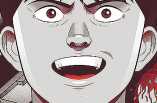

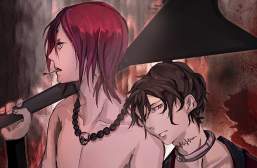
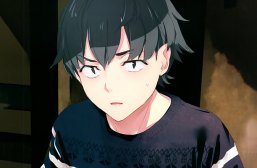
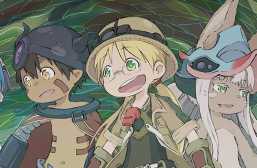
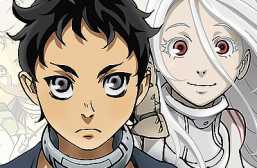
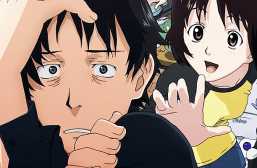
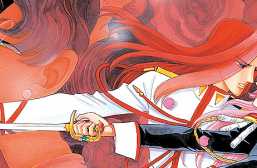
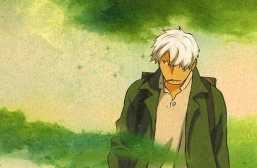
I watch very little anime, but the one that really gripped me was One Punch Man. It does a really good job of conveying the emptiness of being, the disillusionment we feel in our modern day corporate lives, the nature we are destroying, the politicking and pointlessness, how the people doing real work go unappreciated and even hated, while the ones who seek publicity and are “well put together” gain fame, misappropriate the achievements of others.
I am not at all sure if other anime is like this. From my brief experiences, no. However, stuff like One Punch Man is a really biting critique on society and society’s values and priorities. And it is also about how one can still exist by having the right viewpoint.
If you’re looking for something similar in tone and comedic humor, I recommend Mob Psycho 100, which is written by the same author as OPM and is very well animated
Neon Genesis Evangelion is one of the real colossi of anime for a lot of reasons, and its philosophical portions are one of those. Simply put, it is really not afraid to get real with you from time to time.
Also, the film that concludes the series, The End of Evangelion, is a masterpiece of filmmaking. It runs concurrent to the final two episodes, which is a cool enough concept in itself, but the execution… good lord. It’s perfect. Nary a single frame is wasted in that movie.
If you want to see some nihilism wrapped in seedy underworld shenanigans, Black Lagoon is really good.
Ghost in the Shell is a military/special police force series that deals with different themes: The original movie deals with the idea of self and having a “ghost” and what does it mean? Can a robot or artificial intelligence get so human like that it obtains one and if not, why?
The show Stand Alone Complex deals with social philosophy. A main throughplot is copycat syndrome. The title itself is a reference to copycat syndrome with no real beginning, just urban legend almost. Nobody knows the true origin but people started doing it.
The movies get more into the idea of spiritual self and having a spirit or being.
If you want something deep, check psycho pass, ghost in the shell or puella magi madoka.
One Punch Man is great. There are some other really rewarding shows out there. If you’re open to another, check out ‘Erased.’ It’s completely different, far more serious, and yet captivating to a huge audience. It’s got some really neat philosophical undertones to it as well.
You might like Parasyte. It has some interesting themes, and it’s a very solid show.
My continental philosophy professor made a joke about Neon Genesis Evangelion and Hegel the other day, which, besides being funny, was actually a pretty accurate appraisal of the series. It’s probably the only anime that makes direct and sustained reference to academic philosophy, rather than some vague notion of employing ‘philosophical themes’.
Don’t leave us hanging. 🙂 What was the joke?
He showed of slide of this scene: https://i0.kym-cdn.com/entries/icons/original/000/018/408/neon_genesis_evangelion_end_of_desktop_2616x2626_hd-wallpaper-1035766.jpg
But with Rei’s head replaced by Hegel’s, and then moved on without comment. The joke here is that a sizable section of the fanbase (and my professor, apparently) read that scene as a representation of the Lord-Bondsman dialectic. I think about a tenth of the class got the joke, and everyone else was very confused.
I’m a rare strand of weeb that hasn’t watched evangelion- I’ve heard a lot of mixed things about it though. Overall, do you think it’s worth watching?
Well, it’s my #1 of all time, so yeah I consider it worth watching.
It’s also a series where it either works for you or it doesn’t (no in between), so don’t feel too bad if you can’t get into it.
Serial Experiments Lain. 😉
In my view, it handles the philosophical themes much better than Evangelion, because—I think—in the latter series, the transition to a more philosophical- or psychological-like ambiance was unintended. Lain is also quite a timely series insofar as the plot relates to how modern technology and the Internet (called “The Wired” within the series) connect people to each other, be it intended or otherwise.
Honestly, an anime-watcher who hasn’t seen NGE or EoE isn’t that uncommon, especially in the post-SAO wave of viewers. A lot of younger and/or newer watchers tend to complain about the show ‘looking old’ and then skipping it. It’s really such a travesty that newer art styles are valued so much more than a complex story and excellent philosophy. So, yeah. Watch it, at the very least as one of the Great Classic anime.
I think that it is worth watching, personally I really enjoyed it and it is one of my favorite anime.
If you’re a fan of religious philosophy, NGE will give you cud for days. The dichotomy of western and eastern philosophy is a deep well.
It is good to see that people are recognising Evangelion – I recently revisited it after not seeing it since the 90s and I was surprised just how much philosophy was there.. It really is worth watching.
Naoki Urasawa’s Monster has some cool things going on with determinism, moral psychology, and the nature of evil, but mostly it’s just really damn good.
This. And with some modifications the pilot could be an applied ethics thought experiment.
I love Monster, is one of the best studios of ethics. Plus, I love how the series dont have a classic “Morality is everything who you want to be, but still be nice please!” but rather, it actually encourage the viewer to be a good person.
Well done and a nice piece of work. I’m pleased I could help with the editorial process.
Thank you. I’m happy you helped.
I like Shinsekai Yori, about human nature, society, etc. Especially in the end when some major plot twists happen and you look on everything from different perspective.
Anime to study in this topic is Girls Last Tour. It follows two girls who are some of the only remaining humans in a post-apocalyptic future, who travel in each other’s company trying to find things to survive like food and fuel for their tank.
Since they don’t know anything about the past, they talk about things like war, family, music, religion, and even the meaning of life from a perspective that’s completely ignorant about all of those things.
It’s got no fanservice, just two cute blobby girls and philosophical musing.
Blackburn. Hi, excuse me for throwing in my two-penneth worth here, but I couldn’t agree with you more! ‘Shoujo Shuumatsu Ryokou’ (aka Girls’ Last Tour) really took me by surprise. Its gentle pace and musings are perfectly pitched. I presume you’ve read the manga as well? If not then I won’t give away the ending, but let’s just say that in context of the story, it’s the only logical conclusion. My favourite sub-stories are ‘Bath’, ‘The Sound of Rain’ and ‘Moonlight’, all of which are beautifully illustrated in the anime adaptation. Interesting that you should mention writing a study of GLT, as I have one underway. I’m just completing another article first, so plan to have the one about GLT finished by October. Bless their little potato heads!
The manga that literally changed my way of seeing things was Goodnight Punpun it’s amazing.
Kino no Tabi has a different philosophical theme or moral question for every episode. Another, completely different, anime I would note with the theme of philosophy is Fate/Zero, which aside from its heavy drama and action is based upon the clash of ideas of many its characters.
If you want something off the deep end watch the old classic Angel’s Egg.
Legend of the Galactic Heroes my friend. It has just about everything you could ever want in an anime, and more. Epic classical music, thoughtful discussions on government, history, philosophy, morality, the meaning of life, you name it.
Can we discuss non-japanese anime like Avatar – Legend of Korra? They both features some general topics like equality, ends justifying the means, freedom vs. safety/security and others.
The main thing I’ve noticed about philosophy in anime compared to that of western shows/movies is that in anime there are very original or unusual plots, circumstances, or story arcs, but in general the same handful of characters or character archetypes (although a lot of them develop differently). In the big-money western TV/movies there are a lot of different character ideas but not a huge variation in what can happen with the plot – for action movies there is usually some bad guy trying to either destroy or conquer the country/world/universe and the good guys fight them and eventually win, pretty much without exception. Star Wars/Marvel/LoTR and Hobbit/Harry Potter etc basically all follow this trend, though the characters are hardly interchangable. This theme occurs in anime some but look at the different plots in some anime – While you could switch characters around between Attack on Titan/Death Note/Hero Academia/Steins Gate/Evangelion and still have people who can interact with each other naturally because they’re so similar, the premises of the shows are entirely different – The characters in one anime would have to explain a ton of things to those of another in order to work together on their own plot whereas if Harry Potter and Captain America showed up in the Star Wars universe the Rebels would only have to tell them “The Empire are the bad guys” and they could all fight them together.
I get what you’re saying about character archetypes, with the shut in, the tsundere, the yandere, etc., but you chose shows with very unique characters for switching.
Archetypes are shortcuts for authors to create characters quickly. If you were to write a story, it would be very tedious to imagine every secondary character from birth and create a unique personality based on their past experiences.
By using an archetypal mould, you can quickly create interesting characters that are distinct and easy to remember. This lends well to the unique plot ideas that then require people to support and fill in the gaps that upgrades a premise to a fully realised story.
Anime has inspired numerous Hollywood movies and writers frequently cite anime as exploring concepts far ahead of their time.
Really good topic to discuss. I find philosophy of fictional worldviews very interesting and animes is a prime example for this.
It is important to give out some backgrounds: Japan is an EXTREMELY conservative country and no youth have any political influence whatsoever. The Japanese culture is dominated by people 50 years and older, and they well deserve that as they contributed tremendously to Japanese economy.
But with Japan phasing out manufacturing and Japanese youth graduating and entering the highly skilled workforce, the youth demand more voice in the nation but the elders do not agree.
From this perspective, we can see anime as an escape of Japan’s toxic work culture, as well as serving as a counter culture — if the mainstream do not accept us, then screw them and make our own culture. The anime culture can be seen as a parallel culture hanging above the mainstream.
In another perspective, animes are quite broad in terms of definition. It is clear that most animes are fantasy based and they please people who cannot achieve what they want in real life. Cannot find a wife? Come get a waifu! Don’t get any power? Enjoy watching Mary Sues or justice warriors and imagine being one! This is true for all forms of media but I do personally, unverified think that animes are more prominent.
Well said and thank you for sharing the historical and cultural context. Anime and manga have indeed become a direct reflection of Japanese society – with its qualities and flaws.
What are your opinions about the growing blurring of line or lack of distinctions between reality and anime/manga world? Japanese youths are choosing to live ‘with/as’ their favourite characters more such as visiting maid café or a more extreme case such as the ability to marry a waifu?
Ironic though considering how much time is takes to draw quality manga/anime. Eiichiro Oda is slowly killing himself for One Piece.
“they well deserve that as they contributed tremendously to Japanese economy.”
I know this wasn’t the point of your comment, but I fail to see how the older Japanese generation “deserve” anything. It’s been nearly 30 years since the bubble burst and that generation has done a poor job of getting Japan out of the massive hole they dug the country into.
Japan is in dire need of fresh leadership and reform, but it likely will not happen because they have one of the highest life expectancies and one of the lowest birthrates of any country.
I feel like you’re highly oversimplifying the political and age-related issues in Japan right now.
I didn’t like that you paraphrased the Wikipedia article on philosophy in your introduction.
That being said, I like the direction of the article, and I think there are certainly some anime that get quite philosophical. The 1995 film Ghost in the Shell and its sequel come to mind.
That’s a fair criticism. I think the most influential anime seem to have more philosophical views than others. Ghost is the Shell is a good example.
Philosophy is always a wonderful, intriguing topic to discuss with different mediums and pieces of media. I’m sure that the overall discourse about Anime and philosophy could be turned into dozens of articles on different shows and philosophical issues! Nice work!
Thank you. I had to limit the number of example, there were too many. Philosophy has had an tremendous influence on anime.
What I like most about anime is how it constructs story that you would never see executed in the same way in a western animation. My favourite anime is Steins;Gate, it’s a time travel story adapted from a visual novel with the same name and I can say that, at least for me, that I’ve never seen such a well-crafted and planned out story surrounding time travel in any other form of media or story telling. When discussing the story, I’m always amazed about this fact, at how well constructed the narrative and the complex time travel aspects are. This anime amongst others are stories that I’ve never seen told with this level of quality in western animation or even live-action shows. This is something that feels quite unique to anime for me or Japanese storytelling as a whole.
If you want an Anime with a deep root in philosophy, then you should check out “The Book of Bantorra”. It went right over most people’s heads, because they couldn’t make anything of all the philosophical motives that are being worked therein. Christian philosophy and ideology especially is being drawn upon to tell a rather complex story about people and their motivations.
Anime, like modern TV series, is most successful when it has a message or theme that resonates with a large audience. There is no shortage of chaff but likewise there are plenty of really excellent narratives.
Houseki no Kuni tackles a philosophical concept really well; that of the nature of identity. It mostly just runs it in parallel with the story of Phos’ self-actualization, shedding parts and replacing them to try to be the best version of itself, while asking how much it could lose before it truly isn’t itself anymore. The story and setting is designed to try to get that across but still remain a story.
I love how in Ghost in the Shell, they choose to pause the narrative and have an exposition/monologue for a couple of minutes, really ham-fist it in.
Every good anime (except comedy perhaps and some others) has themes and those themes are tied to some sociologial or philosophical thing.
Thanks for the article. If you all want to understand the essence of the philosophy of Friedrich Nietzsche, I would recommend Gurren Lagann. Then you will understand the Will to Power.
Death Note has stayed with me since I watched it. I still wish I had access to a DN despite being completely persuaded by the anime that it would be irresistibly corrupting.
I can find some anime’s philosophically confusing from an sexuality point of view. For example, I’ve been watching Sword Art Online and it’s very emotionally intelligent in terms of the complexities of relationships, loss, grief, trauma, and overall has a deep understanding of the human condition. However, it really unnecessarily sexualizes girls to no benefit of the plot, especially younger ones. It even sexualizes characters who grew up as siblings, which I didn’t understand why either. I noticed this even more in Kill la Kill, where it seemed like every male character was fighting the urge to sexually assault the main character. There seems to be a common trend for a character trait to be sexually irresistible.
Tokyo Ghoul is a modern existentialist masterpiece. It has similar themes to those explored in The Metamorphosis by Kafka. I wish more philosophers would watch it
You could have touched on Houseki no Kuni – It’s themes are based around the Buddhist religion, raising questions about the purpose of life, or death, or the concept of change. Really an outstanding show I’d say and only at 12 episodes, so it’s quick to get through.
Some anime gives primacy to its story. Some gives primacy to its philosophies.
Using anime today is very important
Good stuff, I love seeing modern anime that incorporates philosophical themes. I never would have thought to connect Adam Smith’s idea of competition to One Piece, so good eye!
I also think Psycho-Pass is another great anime that explores philosophical themes, mostly related to politics, ethics, and free will.
Excellent piece. Can’t believe no one’s mentioned Ergo Proxy. Definitely one to watch if you’re philosophically inclined.
I must say that the author of this article has done an amazing job in describing to the readers about how philosophy can be interpreted in animes. I would like to add that you can also see philosophical theories in movies and tv shows. Rick and Morty is a famous example of a tv show that has re-occurring philosophical themes. I think it is amazing to have philosophical themes presented in the movies and tv shows, including anime.
When you look at the history of anime, it is peppered with shows and works that have been heavily influenced by philosophies revolving around various concepts. From classics like Akira to modern classics like Full Metal Alchemist, philosophical concepts are an integral part of the formulation of various anime shows. I think in many ways it is natural for most forms of artistic media to have a degree of philosophy in them as philosophy began as a love in the pursuit of knowledge. As artists, there is a certain love that is transposed in our own interpretations of the world (our knowledge), and as such naturally begs the influence of philosophy as a human element that helps bring character and personality to the work that is written.
A good essay. The connection to Adam Smith is interesting.
Ooh yes I wish you had pushed the Adam Smith/One Piece connection a bit further, especially considering how the Straw Hats crew is essentially a “mini-society” where everyone specializes in their one skill, and the harmony/growth of the whole depends on everyone’s ability to fulfill their part. Great insight, glad you saw that!